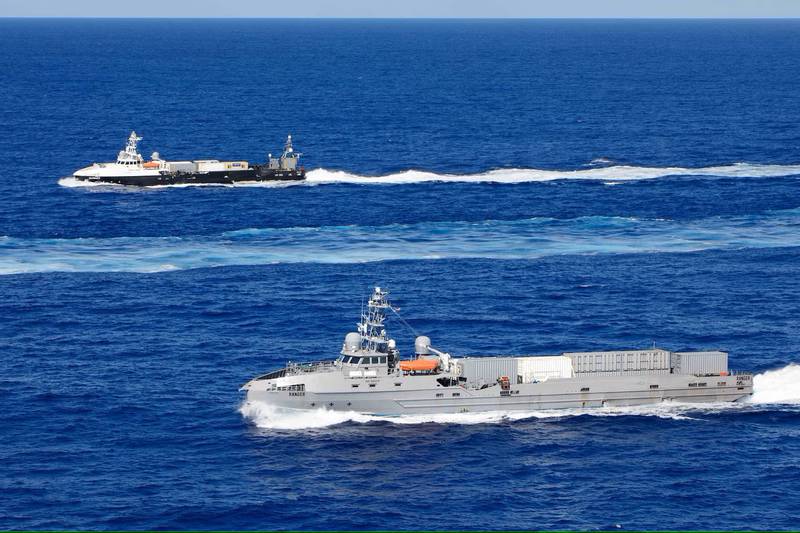WASHINGTON — The U.S. Navy awarded Lockheed Martin $23 million to begin creating the Integrated Combat System that may one day connect the Navy’s and U.S. Coast Guard’s surface fleets.
The award could be worth up to $1.1 billion if all options are exercised through fiscal 2030.
RELATED

Lockheed’s winning bid was one of two submitted, according to a Defense Department announcement that did not name the second bidder. The Navy’s new program office for the integrated combat system issued a request for proposals for the systems engineering and software integration of a future ICS in May 2022.
Joe DePietro, Lockheed’s vice president and general manager for multi-domain combat solutions, told Defense News that the company’s “21st Century Security strategy is delivering capabilities including the Integrated Combat System, a next generation combat management system aligned to the Navy’s objectives to deliver high quality, scalable capability across the surface navy.
“By leveraging the best of industry, we are creating the environment to quickly develop and field capabilities that will keep the Navy ready for current and future threats,” he said in an email.
The Navy envisions a common combat system connecting ships in the future. Today, destroyers, cruisers and littoral combat ships use variations of Lockheed’s Aegis Combat System, something frigates and unmanned surface vessels will also use. Amphibious ships and aircraft carriers use a separate Ship Self-Defense System that was developed by Raytheon and is now managed by Lockheed.
“We’re really looking at how do we evolve … from our surface Navy combat systems into an integrated combat system that can be fielded across the board,” DePietro previously told Defense News.
If the Navy could achieve a common combat system for all its surface combatants, it could field and integrate new capabilities across the entire fleet faster and manage the combat system for less cost, leaders have said. To achieve this vision, the Navy is pursuing ICS hardware and software development programs — supplemented by a Forge effort for software development and experimentation and Foundry for hardware — aimed at supporting not only its fleet of surface ships but also Coast Guard vessels and foreign military sales.
“The Software Program designs, develops, and supports ICS software capabilities in support of mission execution for surface ships. The Hardware Program designs, procures, and supports the shipboard computing infrastructure, consoles, and peripherals for sailor interface with, and hosting of, the ICS software,” according to a Navy notice on the System for Award Management website.
By decoupling the hardware and software, the Navy intends to be able to upgrade each on their own schedules, as new technology develops and budgets allow. New capabilities can be fielded and vulnerabilities patched by pushing software updates to the ships instead of bringing them to the pier for physical changes. Computer servers or consoles could be swapped in as commercial industry pushes the technology forward.
Lockheed has been paving the way for this effort by digitizing the Aegis Combat System and Ship Self-Defense System as much as possible. It’s already “virtualized” the Aegis system, allowing it to be run from a small-form computer package instead of requiring the massive hardware on a ship.
Through this effort, the virtualized Aegis system has been plugged onto unmanned surface vessels to launch missiles, has become the heart of the Army’s ground-based Typhon mid-range capability for land and maritime defense, and has been used as a digital twin to test out new capabilities live on ships without disrupting their established combat systems.
Rear Adm. Fred Pyle, the director of surface warfare on the chief of naval operations’ staff, previously said this overall effort is meant to “get to that nirvana of one combat system.”
Megan Eckstein is the naval warfare reporter at Defense News. She has covered military news since 2009, with a focus on U.S. Navy and Marine Corps operations, acquisition programs and budgets. She has reported from four geographic fleets and is happiest when she’s filing stories from a ship. Megan is a University of Maryland alumna.
- SEO Powered Content & PR Distribution. Get Amplified Today.
- PlatoData.Network Vertical Generative Ai. Empower Yourself. Access Here.
- PlatoAiStream. Web3 Intelligence. Knowledge Amplified. Access Here.
- PlatoESG. Carbon, CleanTech, Energy, Environment, Solar, Waste Management. Access Here.
- PlatoHealth. Biotech and Clinical Trials Intelligence. Access Here.
- Source: https://www.defensenews.com/battlefield-tech/it-networks/2023/09/29/lockheed-wins-11b-contract-to-design-navys-integrated-combat-system/



